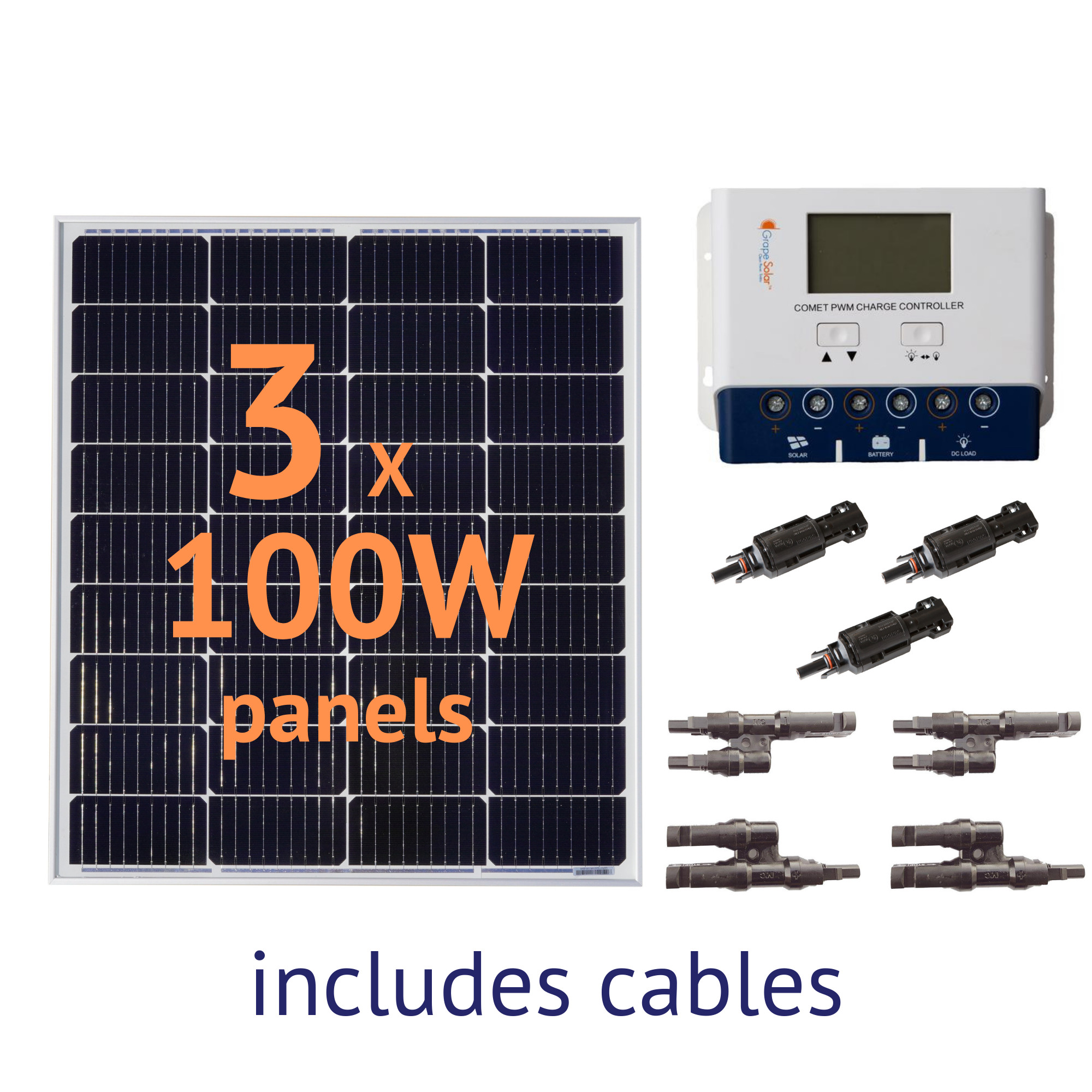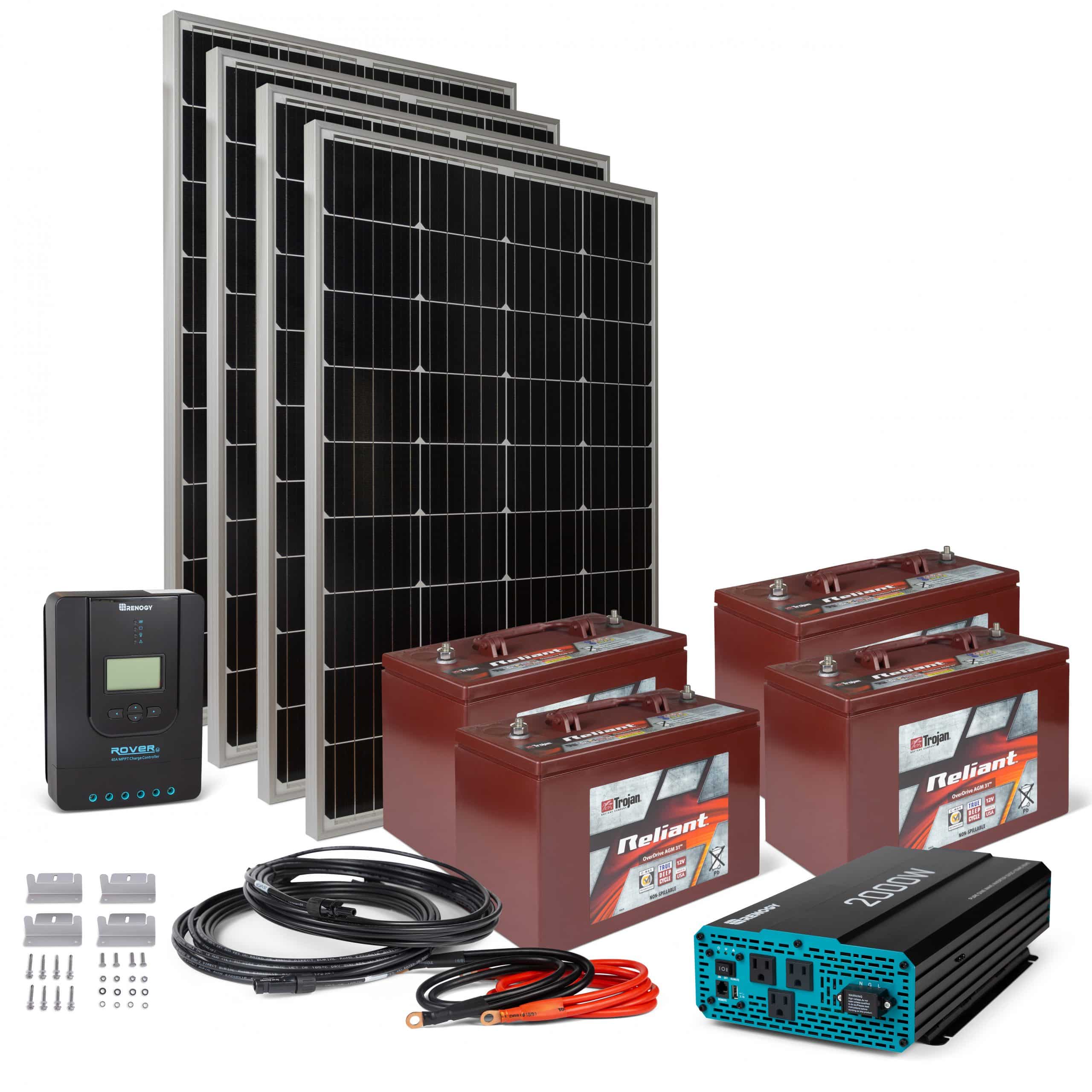As off grid solar kit reviews take center stage, this opening passage beckons readers into a world crafted with expertise, ensuring a reading experience that is both absorbing and distinctly original.
Off-grid solar kits have emerged as a beacon of sustainable energy, offering freedom from the constraints of traditional power grids. In this comprehensive guide, we delve into the intricacies of these kits, empowering you to make informed decisions based on unbiased reviews and expert insights.
Off-Grid Solar Kit Overview
Off-grid solar kits provide a reliable and sustainable source of electricity for locations without access to the electrical grid. These kits typically consist of solar panels, a charge controller, batteries, and an inverter, working together to convert sunlight into usable electricity.
Off-grid solar kits offer numerous benefits, including energy independence, reduced reliance on fossil fuels, and lower electricity costs. They are suitable for various applications, such as powering homes, cabins, RVs, and boats.
Types of Off-Grid Solar Kits
Off-grid solar kits come in different types, each designed for specific needs and power requirements:
- Small Kits:Ideal for basic applications like charging small electronics, lighting, and running small appliances.
- Medium Kits:Suitable for powering larger appliances, such as refrigerators, pumps, and power tools.
- Large Kits:Designed to meet the energy demands of entire homes or businesses, providing enough power for all essential appliances and lighting.
Key Considerations for Off-Grid Solar Kit Selection
When selecting an off-grid solar kit, it is crucial to consider various factors to ensure the kit meets the specific energy needs of the intended application. Key considerations include power requirements, battery capacity, and inverter type.
Matching the kit’s capacity to the energy needs is essential to avoid under- or oversizing the system. Undersized kits may fail to provide sufficient power, while oversized kits can be costly and inefficient.
Notice ecotourism destinations in costa rica for recommendations and other broad suggestions.
Power Requirements
- Determine the total wattage of appliances and devices that will be powered by the solar kit.
- Consider the peak power consumption of each device, as well as the average daily usage.
- Estimate the total daily energy consumption in kilowatt-hours (kWh) by multiplying the total wattage by the average daily usage hours.
Battery Capacity
- Choose a battery capacity that can store enough energy to meet the daily energy consumption.
- Consider the battery’s depth of discharge (DOD) and cycle life to determine its usable capacity and lifespan.
- Estimate the battery’s required amp-hours (Ah) by dividing the daily energy consumption (kWh) by the battery voltage (V).
Inverter Type
- Select an inverter type that matches the power requirements and voltage needs of the appliances.
- Consider the efficiency and waveform of the inverter, as these factors affect power output and device compatibility.
- Choose between modified sine wave, pure sine wave, or hybrid inverters based on the sensitivity of the connected devices.
Reviews and Comparisons of Popular Off-Grid Solar Kits
To assist in selecting the optimal off-grid solar kit, it’s crucial to consult unbiased reviews and comparisons from reliable sources. This will provide valuable insights into the performance, reliability, and cost-effectiveness of various kits.
Below, we have gathered reviews and comparisons from reputable sources to help you make an informed decision.
When investigating detailed guidance, check out adverse effects of tourism now.
Review Sources
- SolarReviews.com:An independent platform offering comprehensive reviews and ratings of solar products, including off-grid solar kits.
- The Solar Nerd:A blog run by a solar industry expert that provides detailed reviews and comparisons of different solar kits.
- Alternative Energy Reviews:A website dedicated to providing unbiased reviews and comparisons of renewable energy products, including off-grid solar kits.
Comparison Table, Off grid solar kit reviews
To facilitate easy comparison, we have created a table that Artikels the key specifications and features of some of the most popular off-grid solar kits on the market.
| Kit | Power Output | Battery Capacity | Inverter Type | Cost |
|---|---|---|---|---|
| Renogy 2000W Off-Grid Solar Kit | 2000W | 4 x 12V 100Ah | Pure sine wave | $2,500 |
| Goal Zero Yeti 1500X Portable Power Station | 1500W | 2 x 12V 100Ah | Modified sine wave | $2,000 |
| Bluetti AC200P Portable Power Station | 2000W | 2 x 12V 100Ah | Pure sine wave | $2,300 |
| Jackery Explorer 2000 Pro Portable Power Station | 2000W | 2 x 12V 100Ah | Pure sine wave | $2,200 |
Installation and Maintenance Considerations: Off Grid Solar Kit Reviews
Installing and maintaining an off-grid solar kit is essential for its efficient operation and longevity. Here are some key considerations to ensure a successful installation and trouble-free performance.
Site Selection
Selecting the right location for your off-grid solar kit is crucial. The ideal site should have:
- Unobstructed access to sunlight throughout the day
- Adequate space for the solar panels and other components
- Proximity to the appliances and loads you want to power
- Protection from extreme weather conditions
Wiring
Proper wiring is vital for the safety and performance of your off-grid solar kit. Use high-quality cables and connectors that are rated for the specific voltage and current of your system. Follow the manufacturer’s instructions carefully and ensure all connections are secure and weatherproof.
Safety Precautions
Working with electricity can be dangerous. Always follow these safety precautions:
- Wear appropriate safety gear, including gloves and eye protection
- Turn off the main power before connecting or disconnecting any components
- Use a multimeter to verify that all connections are correct and there is no voltage present before touching any wires
- Ground the system properly to prevent electrical shock
Regular Maintenance
Regular maintenance is essential to ensure the optimal performance and longevity of your off-grid solar kit. Here are some maintenance tips:
- Clean the solar panels regularly to remove dirt and debris
- Inspect the batteries and connections periodically for any signs of damage or corrosion
- Monitor the system’s performance using a monitoring device or app
- Have the system professionally inspected and serviced annually
Troubleshooting Tips
If you experience any problems with your off-grid solar kit, here are some troubleshooting tips:
- Check the connections to ensure they are secure and clean
- Verify that the solar panels are receiving sunlight and are not obstructed
- Test the batteries to ensure they are still holding a charge
- Reset the system’s controller or inverter if necessary
- Contact the manufacturer or a qualified technician for assistance
Case Studies and Success Stories
Real-world examples and testimonials from individuals and businesses who have successfully implemented off-grid solar kits offer valuable insights into the practical benefits and challenges of these systems. By examining case studies and success stories, we can gain a deeper understanding of how off-grid solar kits can transform lives and businesses, empowering them with sustainable and reliable energy solutions.
Understand how the union of 5 principles of sustainable tourism can improve efficiency and productivity.
These case studies showcase the diverse applications of off-grid solar kits, ranging from remote homes and cabins to businesses and community projects. They highlight the specific challenges faced by each installation, the solutions implemented, and the positive outcomes achieved. By sharing these experiences, we can inspire others to consider off-grid solar kits as a viable and transformative energy option.
Benefits of Off-Grid Solar Kits
- Energy independence and self-reliance, reducing reliance on fossil fuels and grid-connected electricity.
- Cost savings on energy bills, especially in remote areas where grid connection is expensive or unavailable.
- Environmental sustainability, contributing to a cleaner and greener energy future by reducing carbon emissions.
- Increased resilience and preparedness during power outages or natural disasters, ensuring access to essential electricity.
- Enhanced property value, as off-grid solar kits increase the desirability and sustainability of homes and businesses.
Challenges of Off-Grid Solar Kits
- Higher upfront investment costs compared to grid-connected systems.
- Intermittent power generation from solar panels, requiring careful system design and energy storage solutions.
- Maintenance and battery replacement costs over the system’s lifespan.
- Space requirements for solar panels and energy storage systems, especially in urban or space-constrained environments.
- Technical expertise required for system design, installation, and maintenance.
Success Story: Off-Grid Solar Kit Powers Remote Alaskan Cabin
In the remote wilderness of Alaska, an off-grid solar kit has transformed the life of a family living in a secluded cabin. The kit provides reliable electricity for lighting, appliances, and a well pump, enabling them to live comfortably and sustainably in an area with no access to the power grid.
Examine how eco tourist places in kerala can boost performance in your area.
The system has significantly reduced their energy costs and increased their self-sufficiency, allowing them to embrace a more eco-friendly lifestyle.
Success Story: Off-Grid Solar Kit Powers Off-the-Grid Business
A small business in a rural community has harnessed the power of an off-grid solar kit to operate independently of the grid. The kit provides electricity for computers, lighting, and other equipment, enabling the business to continue operations during power outages and reduce its reliance on expensive diesel generators.
The solar kit has not only improved the business’s resilience but has also enhanced its reputation as a sustainable and community-minded enterprise.
Outcome Summary
Our exploration of off-grid solar kit reviews has illuminated the path towards energy independence. Whether you seek to power a remote cabin, RV, or your entire home, this guide has equipped you with the knowledge to select the ideal kit for your needs.
Embrace the future of sustainable living, harnessing the sun’s boundless power to create a brighter, more self-sufficient tomorrow.
Commonly Asked Questions
What are the key factors to consider when selecting an off-grid solar kit?
Power requirements, battery capacity, inverter type, and matching the kit’s capacity to the specific energy needs of the intended application.
What are the benefits of installing an off-grid solar kit?
Energy independence, reduced energy costs, environmental sustainability, and increased property value.
How much maintenance is required for an off-grid solar kit?
Regular cleaning, battery monitoring, and occasional system inspections.


